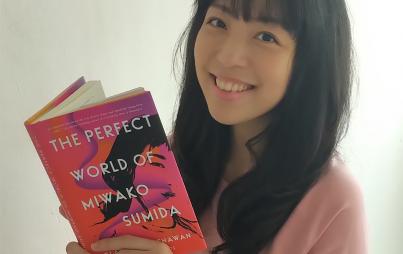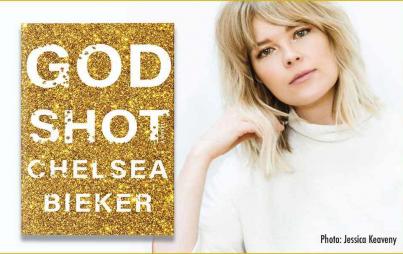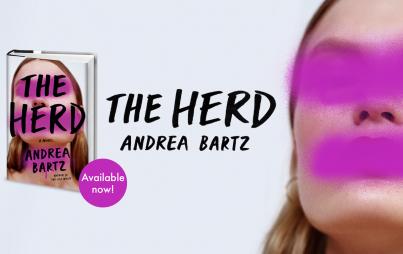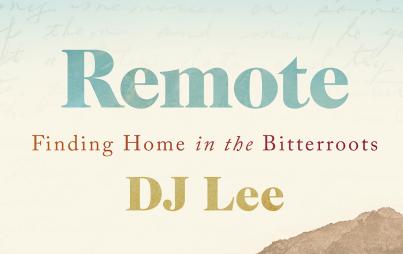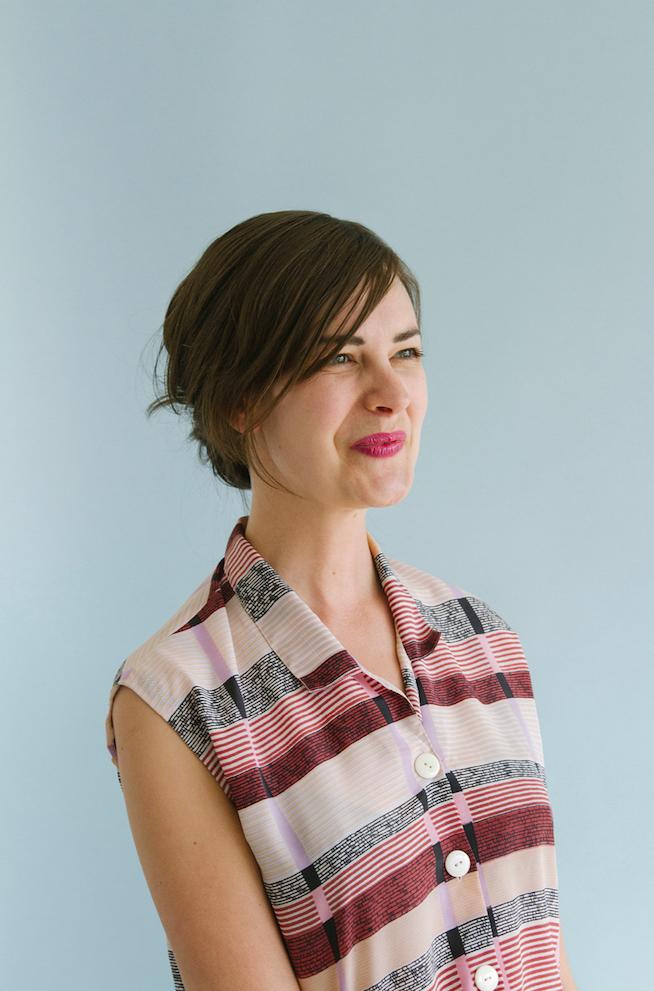
Every time I see Ann Friedman’s name in my RSS feed, I click. Her writing is some of the most compelling and well-researched content on the Internet, and she is easily journalism's most trusted authority on the art of the GIF. She also runs an amazing podcast with her friend, Aminatou Sow. "Call Your Girlfriend," title inspired by the Robyn song of the same name, is a podcast featuring a broad range of cultural commentary, from Ruth Bader Ginsburg to the race politics of emojis. A dedicated loungewear enthusiast, Ann gives us sage advice on caftans as well as tips for young writers learning to network.
There is SO MUCH media to consume and Internet to read. How do you curate your media selection so that it’s enriching to your work and your life?
It's hard to say why I click on and bookmark the things I do. I'm always hunting for perspectives I haven't heard from before, or new ways of connecting ideas that might seem unrelated at first glance. When it comes to my own reporting and writing, I try to strike a balance between being informed and reading up on a topic, but not being so well-versed that I don't ask good questions. I also definitely click and read some things that are not enriching to me. I am human, after all.
You are a big proponent on the narrative power of the GIF. Why do you think that medium lends itself to your writing so well?
I've always liked the way words and visuals work together — even back when I was in journalism school, most of my friends were photojournalists. GIFs are fun because they move and allow you to sort of slyly bring in a different point of view or reference a bigger swath of pop culture with just one image. A well-deployed GIF is like an under-the-breath joke. I just think they're fun. Same goes for emoji, and still images, and certain types of punctuation.
How did your podcast, "Call Your Girlfriend," get its start? How has it been working with your long distance bestie on a regular basis?
Our friend and producer, Gina Delvac, encouraged us to start a podcast and helped us with our gear and our recording software. We didn't have any big ambitions other than just figuring out, for ourselves, how to be more comfortable with audio as a medium. It's not always fun — we usually record in the evenings, and after a day of working sometimes I don't feel like being "on," even if it's with a friend. But ultimately, I almost always get into it once we've been talking for a minute or two. I just love Amina's brain and the way she thinks about the world. The podcast sometimes prompts me to ask her about things we might not otherwise talk about. I love that.
You are a big proponent of the caftan — do you have any favorite brands of lady loungewear to recommend?
My favorite piece of loungewear is a yukata, which is a cotton, less-fancy kimono. It's a super soft, worn cotton robe, with a great navy-and-white graphic print that sort of looks like bar codes. A few years ago I went on an assignment to Japan, and I stayed in hotels where they provided yukatas for all guests. I wanted to buy one to take home, but due to some combination of limited time and limited language skills, I never did. Last year I found one at a thrift store in LA. I wear it every day. Here and here are some similar ones.
You originally wanted to work in print. How has the Internet changed your writing?
I graduated in 2004, before most media outlets took their online platforms seriously. I wanted to work in print because I thought "print" was synonymous with "important, high-quality work." But the Internet was where I could find work early in my career, so I took what I could get. I'm glad I did. I've been writing for the web since my earliest unpaid days as a journalist, so it's hard to say how it's changed my writing. I think almost everything I've written professionally is Internet-friendly — there's no before and after.
A big problem for female writers is networking. Dudes tend to be friends with other dudes, and they tend to give jobs to each other when given the opportunity. What advice do you have to young professional women trying to create their own network?
Don't look always for the "most important person" in the room and try to get them to take an interest in you. Look to your peers. Find some people (they don't have to be women!) who share your struggles and ambitions and values, and help each other out. Make something cool together, even. And don't be afraid, when you read or see something you really like, to just send an email and thank the person who made it. I've had lots of great professional relationships start with the simplest digital hello.
And finally, seeing as this series is called Ladies We Love, who are some ladies you are loving right now?
So many ladies! Here are just a few, off the top of my head: The writers Claire Vaye Watkins and Claudia Rankine and Eula Biss and Clarice Lispector and Rachel Kaadzi Ghansah and Maggie Nelson and Amelia Gray and Jessica Hopper and Rachel Monroe. The photographer Lara Shipley. The artists Kenesha Sneed and Beth Hoeckel and Tuesday Bassen. The musicians Carolyn Pennypacker Riggs and Jana Hunter. The self-care revolutionary Gracy Obuchowicz. Filmmaker Jill Soloway. The most badass political activist in the state of Indiana, Katie Blair. The women who run the Women's Center for Creative Work and the Downtown Women's Center here in Los Angeles.
Image by Ian Flanigan / The Dreslyn




